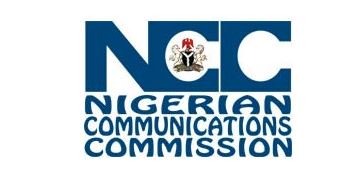NCC remits N144.312b spectrum fees to Fed Govt
The Nigerian Communications Commission (NCC) has so far remitted N144.312billion spectrum fees to the consolidated revenue fund (CRF) of the Federal Government over the last seven years, according to a document obtained at the weekend.
Over the same period, over $2billion in foreign Direct Investment (FDI) and over N800billion in domestic investment came into the country.
The document quoted the Executive Vice Chairman of the NCC, Prof Garba Danbatta as urging the National Assembly to pass the Critical National Infrastructure (CNI) Bill that will classify telecommunications infrastructure across the country as critical national assets. “This will improve the security of the infrastructure. Construction of roads with fibre optic ducts pre-laid will also reduce incidence of vandalism and theft,” Danbatta said.
He identified multiple taxation and regulation, Right of Way (RoW) issues, erratic power supply, damage to telecommunications infrastructure during road construction, willful vandalism of telecoms infrastructure, insecurity, stealing of fuel, batteries and inverters at Base Transceiver Stations (BTS).
“Multiple taxation and regulation have been major challenges bedeviling the industry. It has affected the deployment of infrastructure and the expansion of telecommunication services. However, the Commission is engaging with relevant authorities to harmonise these taxes and regulations,” he said, adding that improvement of power supply to the sites of telecommunications services providers will have the dual effect of reducing operating costs and improving quality of service (QoS) delivery.
He said the high RoW charges across various states of the federation have negatively impacted the required expansion and rollout of fiber optic across the country. Harmonisation of RoW charges will increase investment and expansion of critical transmission infrastructure.
According to him, the engagement of the Minister of Communication and Digital Economy, Dr Isa Pantami with the Nigeria Governors’ Forum (NGF) has however led to the adoption of a maximum of N145/m RoW fees in Kaduna, Katsina, Imo, Ekiti, Kwara and Plateau states.
He said one of the key objectives of the Commission as enunciated in the NCA 2003 is to promote and safeguard national interests, safety and security.
Therefore, the Commission is facilitating the provision of industry field data to Law Enforcement Agencies (LEAs) on quarterly basis, to aid geo-location capabilities and investigations of telecoms related activities.
It is also collaborating with National Identity Management Commission (NIMC) on integration of subscriber identity module (SIM) Registration with its database. “To this end, we’ve issued direction on suspension of SIM registration in December, 2020,” he said, adding that it is also providing porting statistics from the Mobile Number Portability (MNP) management records via the MNOs Clearing House.
“The Commission has positioned itself in Government drive for a digital Nigeria, as contained in the Nigerian National Broadband Plan (2020 – 2025), the National Digital Economy Policy and Strategy (2020–2030) and the Strategic Management Plan (2020– 2024) of the Commission. This is in recognition of the tremendous economic growth opportunities afforded by the deployment of broadband and its associated technologies
“The Commission will continue to put in its best in the discharge of its mandates, especially in facilitating the deployment of broadband, which is central to diversifying the Nigerian economy and national development.
“Also, it is our belief that the communications industry, under the leadership of the Ministry of Communications and Digital Economy, will experience more quantum leaps and retain its current leadership role in the telecommunications space,” Danbatta said.


